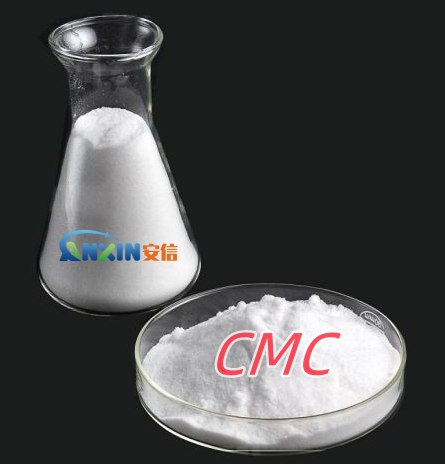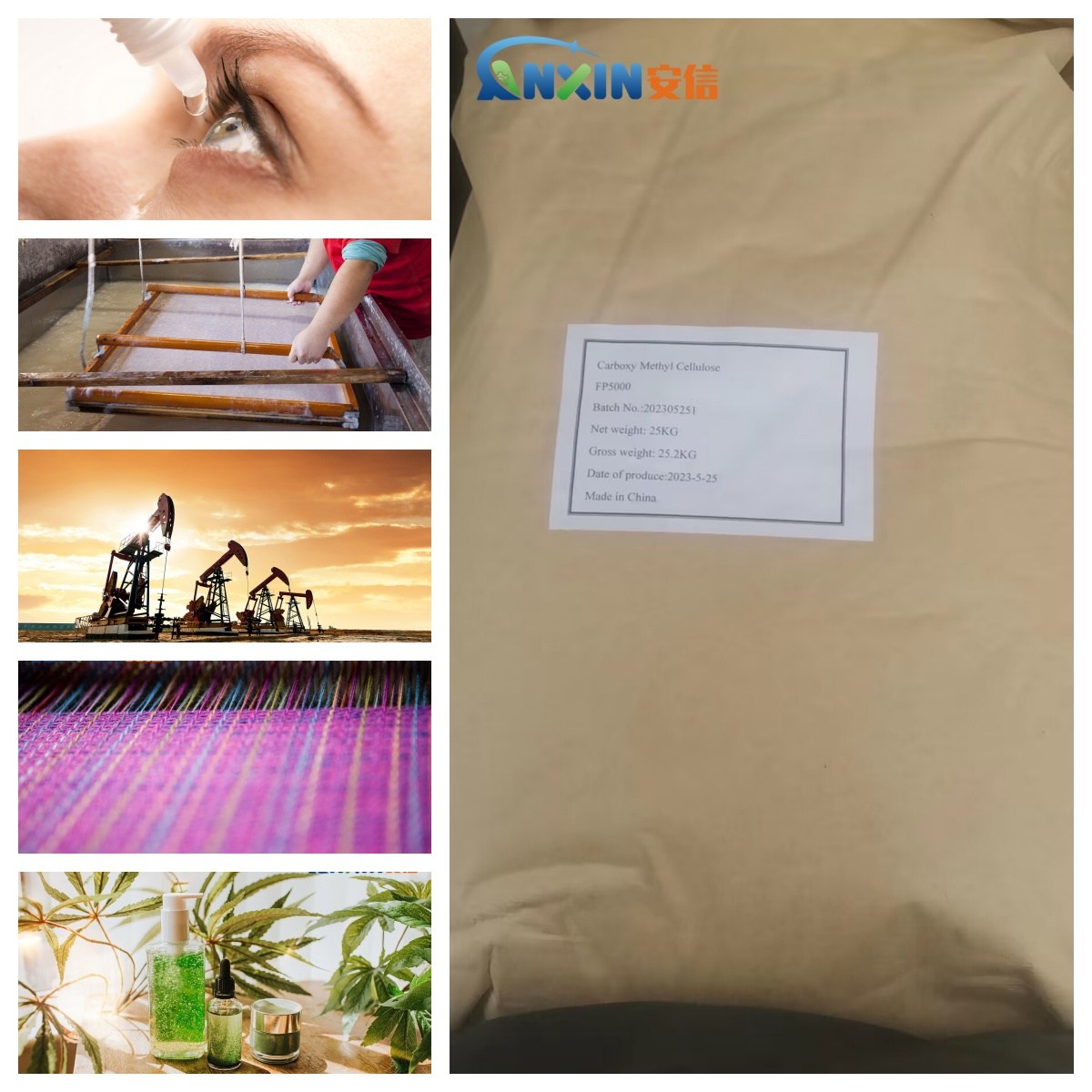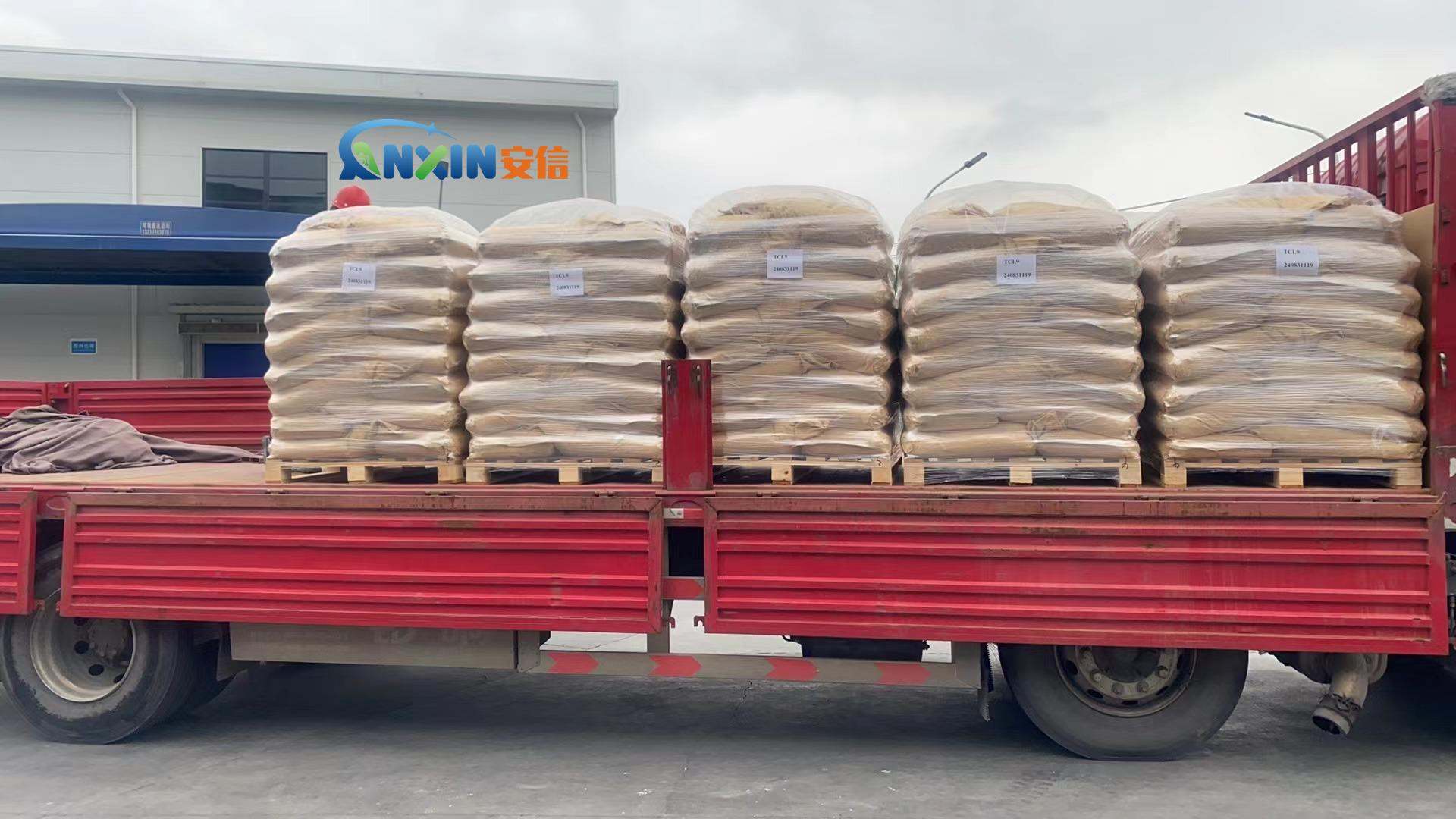Carboxymethyl cellulose (CMC) is an anionic cellulose ether formed by chemical modification of cellulose. It is widely used in food, medicine, daily chemicals, petroleum, papermaking and other industries because of its good thickening, film-forming, emulsifying, suspending and moisturizing properties. CMC has different grades. According to the purity, degree of substitution (DS), viscosity and applicable scenarios, the common grades can be divided into industrial grade, food grade and pharmaceutical grade.

1. Industrial grade carboxymethyl cellulose
Industrial grade CMC is a basic product widely used in many industrial fields. It is mainly used in oil fields, papermaking, ceramics, textiles, printing and dyeing and other industries, especially in mud treatment in oil extraction and reinforcing agent in paper production.
Viscosity: The viscosity range of industrial grade CMC is wide, ranging from low viscosity to high viscosity to meet the needs of different applications. High viscosity CMC is suitable for use as a binder, while low viscosity is suitable for use as a thickener and stabilizer.
Degree of substitution (DS): The degree of substitution of general industrial-grade CMC is low, about 0.5-1.2. A lower degree of substitution can increase the speed at which CMC dissolves in water, allowing it to quickly form a colloid.
Application areas:
Oil drilling: CMC is used as a thickener and suspending agent in drilling mud to enhance the rheology of the mud and prevent the collapse of the well wall.
Papermaking industry: CMC can be used as a pulp enhancer to improve the tensile strength and folding resistance of paper.
Ceramic industry: CMC is used as a thickener for ceramic glazes, which can effectively improve the adhesion and smoothness of the glaze and enhance the film-forming effect.
Advantages: Industrial-grade CMC has a low cost and is suitable for large-scale industrial production.
2. Food-grade carboxymethyl cellulose
Food-grade CMC is widely used in the food industry, mainly as a thickener, emulsifier, stabilizer, etc. to improve the taste, texture and shelf life of food. This grade of CMC has high requirements for purity, hygiene standards and safety.

Viscosity: The viscosity of food-grade CMC is usually low to medium, generally controlled between 300-3000mPa·s. The specific viscosity will be selected according to the application scenario and product needs.
Degree of substitution (DS): The degree of substitution of food-grade CMC is generally controlled between 0.65-0.85, which can provide moderate viscosity and good solubility.
Application areas:
Dairy products: CMC is used in dairy products such as ice cream and yogurt to increase the viscosity and taste of the product.
Beverages: In juice and tea beverages, CMC can act as a suspension stabilizer to prevent pulp from settling.
Noodles: In noodles and rice noodles, CMC can effectively increase the toughness and taste of the noodles, making them more elastic.
Condiments: In sauces and salad dressings, CMC acts as a thickener and emulsifier to prevent oil-water separation and extend the shelf life.
Advantages: Food-grade CMC meets food hygiene standards, is harmless to the human body, is soluble in cold water and can quickly form colloids, and has excellent thickening and stabilizing effects.
3. Pharmaceutical-grade carboxymethyl cellulose
Pharmaceutical-grade CMC requires higher purity and safety standards and is mainly used in pharmaceutical manufacturing and medical devices. This grade of CMC must meet pharmacopoeia standards and undergo strict quality control to ensure that it is non-toxic and non-irritating.
Viscosity: The viscosity range of pharmaceutical-grade CMC is more refined, generally between 400-1500mPa·s, to ensure its controllability and stability in pharmaceutical and medical applications.
Degree of substitution (DS): The degree of substitution of pharmaceutical grade is usually between 0.7-1.2 to provide appropriate solubility and stability.
Application areas:
Drug preparations: CMC acts as a binder and disintegrant for tablets, which can increase the hardness and stability of tablets, and can also disintegrate rapidly in the body.
Eye drops: CMC acts as a thickener and moisturizer for ophthalmic drugs, which can mimic the properties of tears, help lubricate the eyes, and relieve dry eye symptoms.
Wound dressing: CMC can be made into transparent film and gel-like dressings for wound care, with good moisture retention and breathability, promoting wound healing.
Advantages: Medical grade CMC meets pharmacopoeia standards, has high biocompatibility and safety, and is suitable for oral, injection and other administration methods.

4. Special grades of carboxymethyl cellulose
In addition to the above three grades, CMC can also be customized according to the specific needs of different fields, such as cosmetic grade CMC, toothpaste grade CMC, etc. Such special grades of CMC usually have unique properties to meet the special requirements of the industry.
Cosmetic grade CMC: used in skin care products, facial masks, etc., with good film-forming and moisture retention.
Toothpaste grade CMC: used as a thickener and adhesive to give toothpaste a better paste form and fluidity.
Carboxymethyl cellulose has a wide range of applications and a variety of grade options. Each grade has specific physical and chemical properties to meet the needs of different industries.
Post time: Nov-18-2024